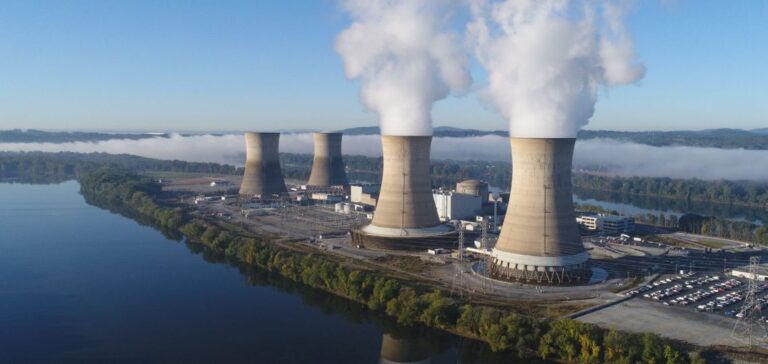A group of major technology and energy companies, along with financial institutions and 31 countries, has signed an agreement to triple global nuclear capacity by 2050. This initiative, led by the World Nuclear Association, includes companies such as Amazon, Google, Meta, Dow, Occidental Petroleum, and other influential industry players. The project aims to meet the growing demand for decarbonized and reliable energy while supporting global energy security goals.
Lucian Tian, Head of Clean Energy and Decarbonisation Technologies at Google, stated that nuclear energy will play a key role in creating a secure and sustainable energy future. Google has also committed to accelerating the commercialization of advanced nuclear technologies. This support is also shared by Amazon, which invested over $1 billion in nuclear projects over the past year, according to Brandon Oyer, Head of Energy and Water for Amazon Web Services.
Currently, nuclear energy generates about 9% of global electricity from 439 reactors. However, the International Energy Agency (IEA) forecasts a continuous growth in energy consumption of around 4% per year, thus increasing the need to expand nuclear capacity to meet future demands.
Clear goals for accelerated expansion
The agreement highlights that it is crucial to triple nuclear capacity by 2050 to strengthen global energy resilience and ensure a continuous supply of clean energy. It also anticipates a significant contribution from nuclear to other economic sectors, such as hydrogen production, industrial heat, district heating, and the manufacture of synthetic fuels. This approach will diversify the applications of nuclear energy beyond electricity generation.
The involvement of technology companies, particularly from the US, underscores the importance of nuclear in supporting large-scale projects like data centers and artificial intelligence applications. For example, Google has partnered with Kairos Power to deploy 500 MW of advanced nuclear reactors by 2030. Amazon, in collaboration with X-Energy and Dominion Energy, is working on advanced reactor projects, while Meta has announced plans to seek proposals for up to 4 GW of nuclear power by the early 2030s.
Increased support for innovation and political reforms
This global commitment to nuclear is a strong signal to regulators and policymakers, urging them to accelerate the necessary reforms to facilitate the rapid expansion of this technology. Sama Bilbao y Leon, Director General of the World Nuclear Association, emphasized that this initiative sends a clear message about the need to adapt policies, financing, and regulations to support this growth.
In this regard, projects such as Constellation Energy’s plan to restart Unit 1 of the Three Mile Island plant to supply power to Microsoft data centers illustrate the growing synergy between the energy and technology sectors.






















